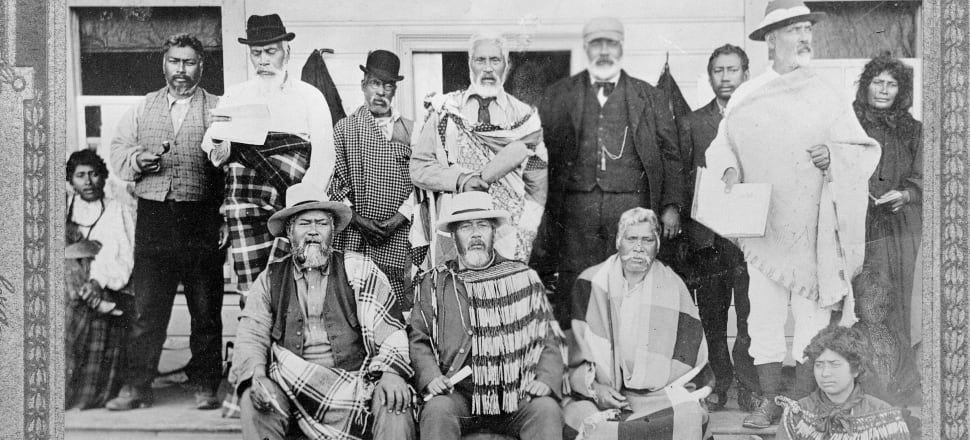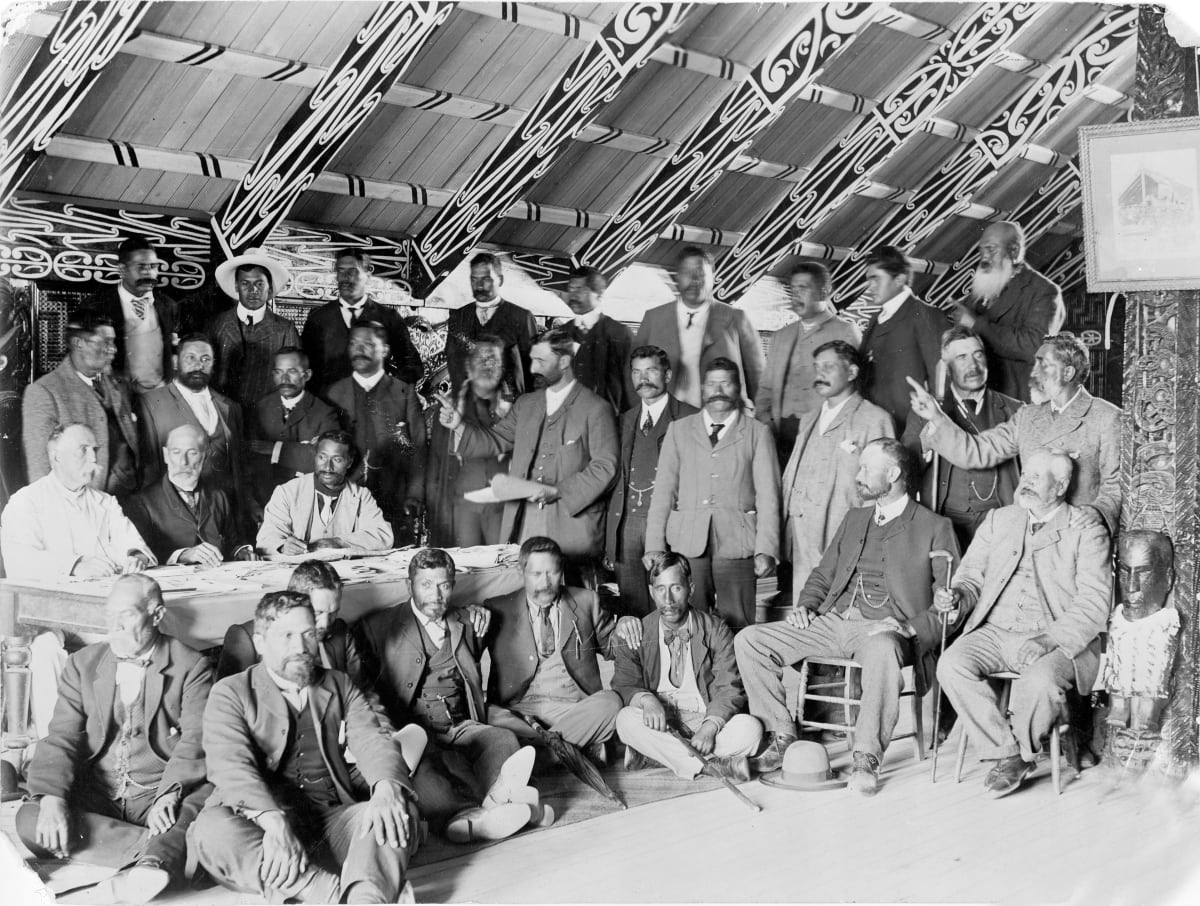
On the Pākehā resistance to Māori sharing power
The spectre of Māori attaining "co-governance" (however defined) is spooking the daylights out of some Pākehā.
The National Party says the newly minted Māori Health Authority / Te Aka Whai Ora, established to address egregious Māori health issues, should be abolished.
The Act Party has gone one better, launching a petition which talks darkly about our country where, with ‘no debate’, co-governance gives you "rights depending on who your ancestors were". A Stop Co-Governance rally was held in Orewa with a roadshow taking the message out to the country.
The issue, at heart, is Pākehā resistance to Māori sharing power.
For Māori, sadly, we have seen this before, played out in many different ways. When Pākehā were first awarded the vote in 1852, for example, Māori were excluded. But this didn’t stop Pākehā politicians from insisting that the government prevent missionaries from enrolling Māori anyway, seeking to exploit a loophole. Disenfranchised Māori, it was feared, were "threatening to swamp the rolls".
Or, when the Native Lands Act 1862 was passed, stripping away Treaty protections over Māori land, solemn protections based on ‘who their ancestors were’. There was ‘no debate’ in 1858, when the Native Rights Bill was introduced, seeking to extinguish all Māori land titles. And there was ‘no debate’ in 1863, when the land confiscations were enacted (Māori still did not have the vote).
And, for good measure, we also saw the gradual dissolution of the 22 Māori Health Councils established to address a wretched health and sanitation crisis on papa kāinga, including a plague scare. Established in 1900 to much acclaim, and with widespread powers, they were soon allowed to wither and die through a lack of government interest.
Though boosted by latter-day success on the rugby field, alongside sentiments arising from Anzac Day, the many contradictions inherent within ‘Pākehā’ remained unresolved. And so it is, to this day
For Māori, in the present, the arguments about ‘co-governance’ draw mixed responses.
This is because we live in a time of much-belated social restoration, cultural rejuvenation and economic regeneration, achieved largely through Crown-funded iwi initiatives.
Māori now own $13 billion of primary assets, such as 50 percent of the fishing quota, 40 percent of forests, 30 percent in lamb production, 30 percent in sheep and beef; and 10 percent in dairy and kiwifruit. Māori farming comprises 720,000 hectares and is worth $7.5b. In this context, Pākehā opposition to ‘co governance’ won’t make a lot of difference. But we do wish Pākehā knew more about their history.
*
From the very beginning, Pākeha were determined that co-governance would not exist.
When the Crown Colony Government was established in 1840, for example, Māori were not admitted as members of the two governing councils, unlike native representation in some Pacific Islands. Instead, a Protectorate was established to manage Māori interests. But their attempts to legitimise autonomous tribal regions, operating under tribal lore, ran afoul of hostile settler opinion.

In the 1860s, Governor Grey offered Māori a semblance of co-governance, with local tribal committees empowered to manage tribal interests. But their powers were severley limited; and Grey was non-negotiable. In the end, Māori withdrew because they saw the committees as a veiled attack on the Māori King.
Thereafter, for decades, Māori sought autonomous tribal governance, with powers to stem their alarming land losses. But the government opposed any form of tribal co-governance. A national system was eventually set up in 1873, but it was too large and unwieldy; and it quickly collapsed. Further committees were established by Native Minister John Ballance in the mid-1880s, but they too collapsed as soon as he lost power.
Māori then turned to independent political action, through the Ōrakei Parliaments after 1879 and Te Kotahitanga / Māori Parliament, established in 1892. Through these autonomous forums, Māori sought to influence legislation, especially that pertaining to land.
As the century drew to a close, the Liberal Government offered a semblance of tribal autonomy but only in return for reform enabling free access to Māori land. And, before long, the losses had overwhelmed Māori, with succeeding iterations of occasional governing committees all failing, in the face of government opposition.
By the 1920s, the government had agreed to grant Trust Boards to Māori, after the establishment of the Te Arawa Board in 1922. But the Trust Board model bothered succeeding governments; they were seen as granting too much power to Māori. The final board was set up in 1991 after 70 years of extreme government ambivalence as to the extent of power and authority that could be shared with Māori.
The Treaty process changed all this, enabling iwi to review their state-sanctioned governing structures. Some boards were abolished, and replaced with new iwi structures. Others were adapted for purpose, and remained in place.
We now have 19 Māori Trust Boards or new post-settlement entities in place, all governed by their own legislation. Members from each entity sit on boards, committees, councils and rūnanga across the entire spectrum of local and national politics, to say nothing of those Māori who, spread far and wide, represent bodies such as the Federation of Māori Authorities, Te Ohu Kaimoana and the Iwi Chairs Forum.
Such representatives, for example, will be participating in key decision-making roles pertaining to the reformed Three Waters government initiative, among many others, where, as pointed out by the former Local Government Minister Nanaia Mahuta, such Māori participation meets "Treaty obligations and maintains relationships between councils and mana whenua".
It seems inconceivable that, in their opposition to co-governance, future governments would seek to undo these multiple layers of incremental co-governance.
Perhaps, however, there is a reason why future governments might try; but it’s a reason that does not involve Māori. This is that, in debating ‘co-governance’, Pākehā are really debating with themselves.
‘Pākehā’ today remains an uncertain ethnic description, having never gained widespread acceptance among its demographic cohort. It is a problem that goes back a long way, to the days when early settlers imposed themselves over Māori. Alan Ward has argued that settler fear of Māori lay behind their determination of "admit Māori only under Pākehā resistance sufferance".
Once this had been achieved, Pākehā embarked on a new ‘nationalism’, using literature, paintings and poetry in an effort to plant Pākehā roots among the country’s organic undergrowth, claiming for themselves an otherwise unforgiving landscape, now seen as denuded of Māori – Pākehā were "singers in a songless land", according to the ethnologist Edward Tregear.
Once claimed, New Zealand became ‘Pākehā’. But, as Keith Sinclair has written, this "literary nationalism" largely failed. Though boosted by latter-day success on the rugby field, alongside sentiments arising from Gallipoli and Anzac Day, the many contradictions inherent within ‘Pākehā’ remained unresolved. And so it is, to this day.
Māori, however, of course know who they are, and where they are from. As the Māori judge Eddie Durie writes, Māori have long existed ‘with complex relationships established between the people, the natural environment, ancestors and spirits’. And Aotearoa has increasingly become multicultural, enriched by new Pacifica, Asian, European and African brethren.
Pākeha are therefore but one ethnicity among many. There is nothing per se threatening here. You would think that, out of this, New Zealand would in time broaden and amplify its multicultural character, allowing all groups free expression and access to governance. From the outset, Māori adhered to this view. As Durie reminds us, Māori were willing to engage with all modes of authority that offered certainty and peace, with one important condition; ‘the expectation of just results’.
Pākehā discomfit in sharing power, however, seems palpable when issues like ‘co-governance’ arise.
With their numbers now proportionately receding, Pākehā still seem fearful, determined to ‘admit Māori [and now non-Māori] only under Pākeha sufferance’.
Trenchant opposition to co-governance therefore becomes a touchstone of Pākehā policy around which like-minded Pākehā can gather; where agencies can be abolished, petitions can be launched, and roadshows undertaken.
Accordingly, the spectre of Māori attaining ‘co-governance’ will continue to spook some Pākehā, serving ends that reach deeply into our history. Perhaps the existence today of the multi-layered and undoubtedly beneficial infrastructure of co-governance between government and Māori will be enough to hold those disquieting ends at bay.
The freshly published The Fate of the Land: Ko ngā Ākinga a ngā Rangatira Māori Political Struggle in the Liberal Era 1891-1902 by Danny Keenan (Massey University Press, $65) is available in bookstores nationwide.







